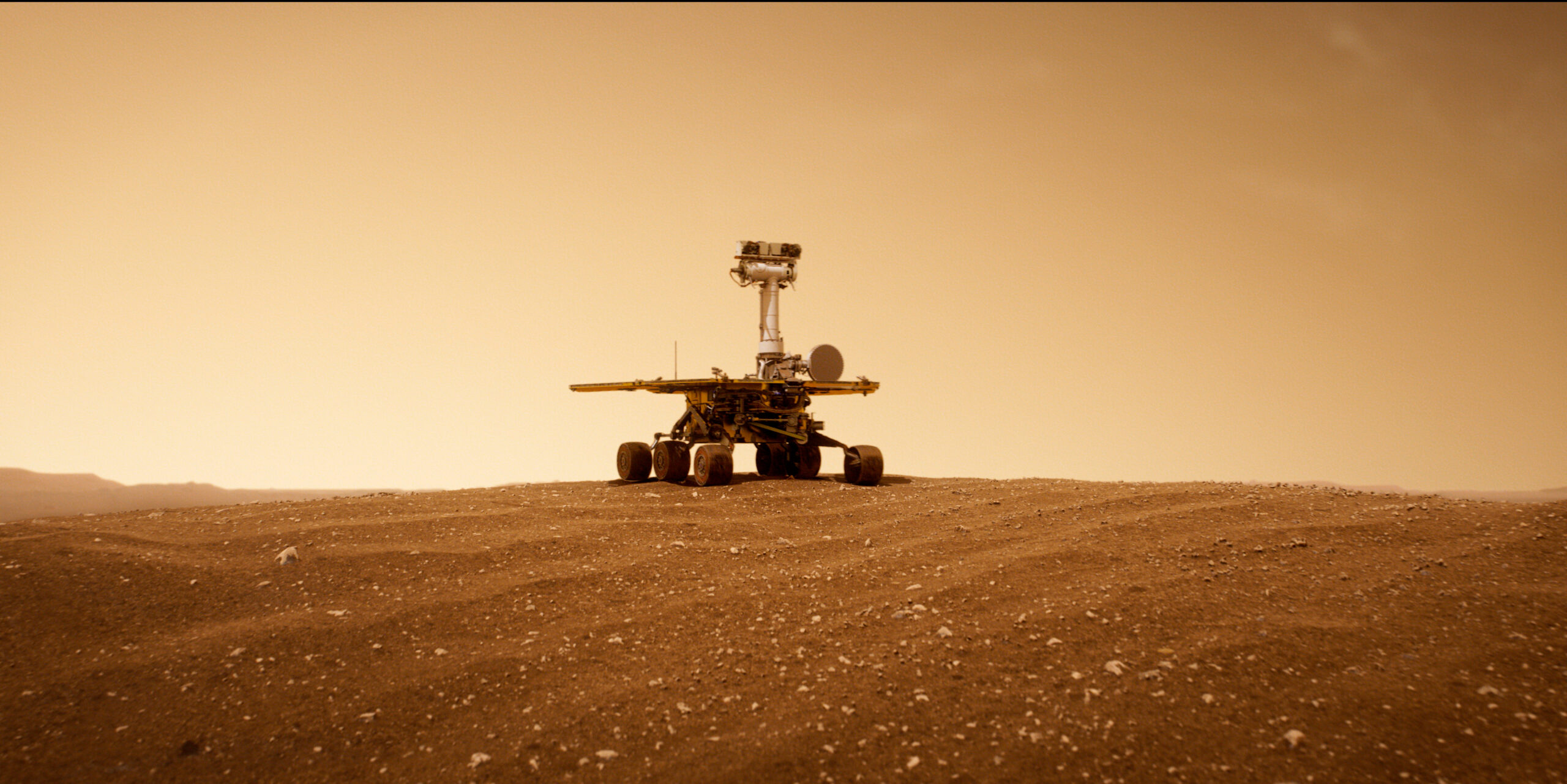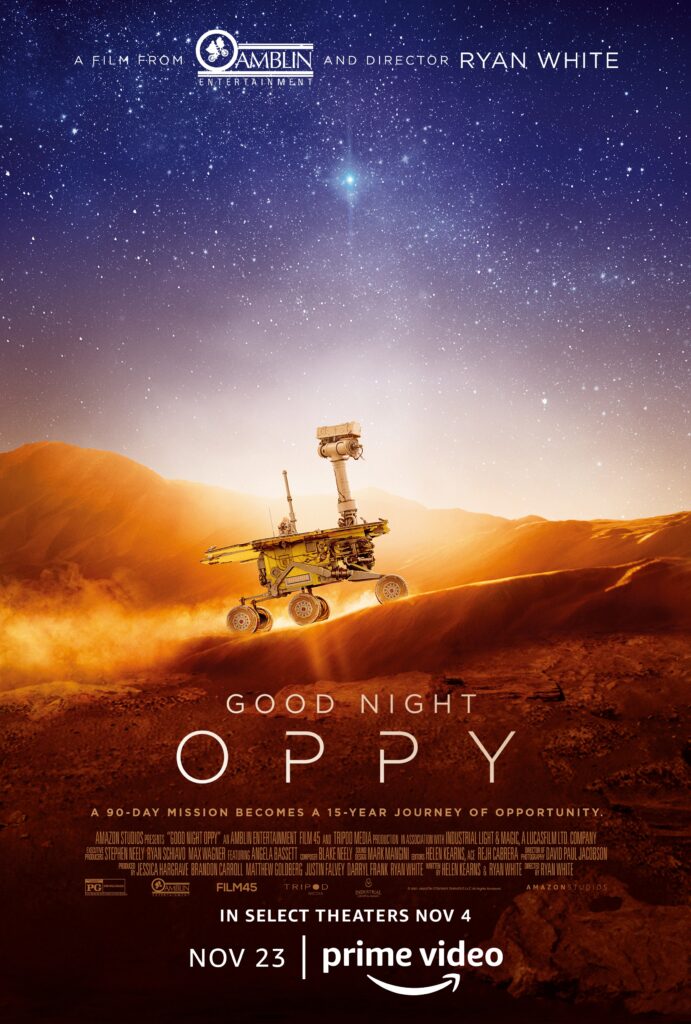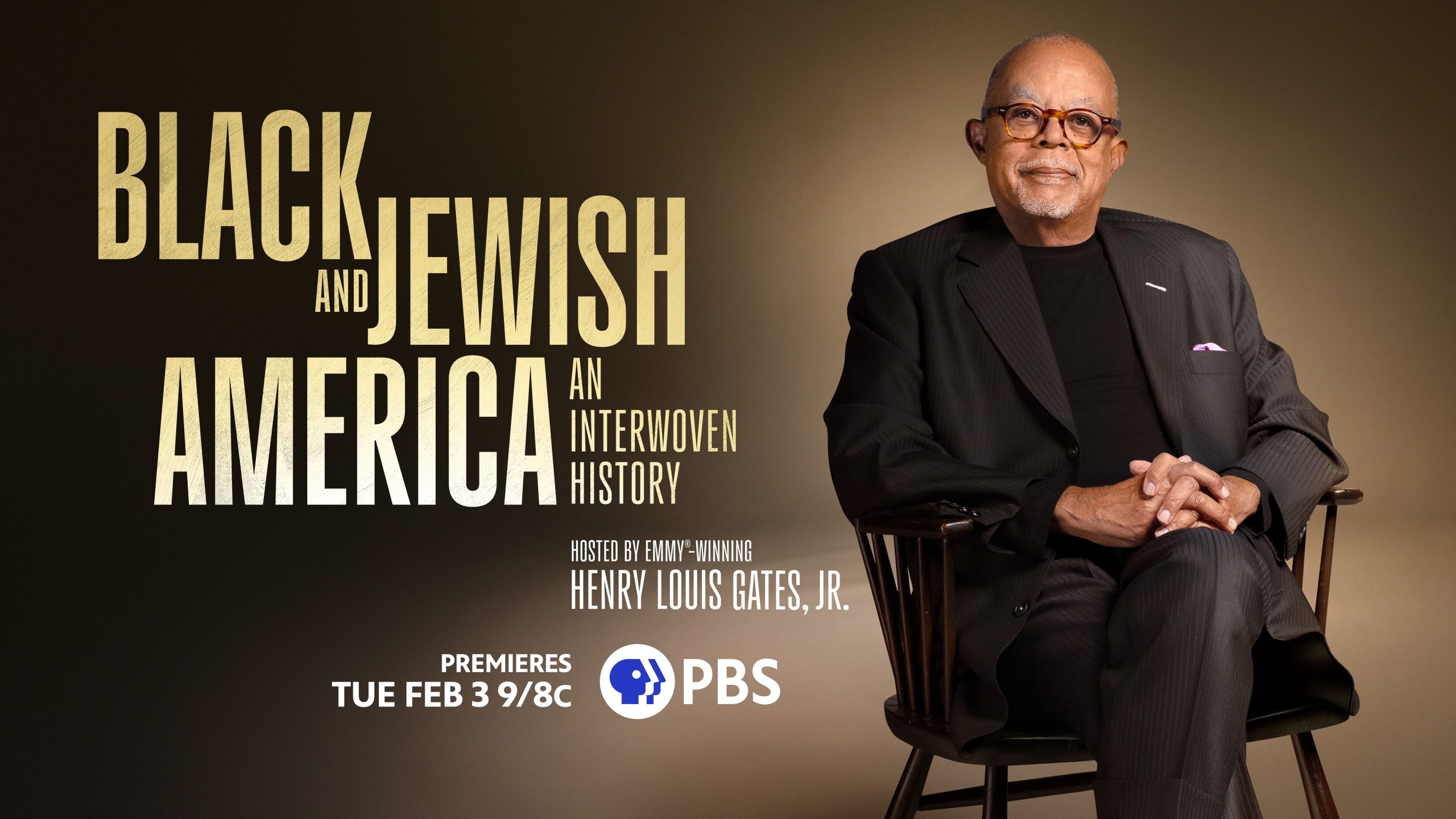
Documentary filmmaker Ryan White spoke with Solzy at the Movies about his new film, Good Night Oppy, and bringing it to the screen.
This is one of those films that I saw during Toronto and fell in love with immediately. It’s a documentary well-suited for the Amblin Entertainment brand because it’s best described as E.T. the Extra-Terrestrial meets WALL-E. That being said, it’s technical achievements are some of the best things about the film. Ryan White talks about Mark Mangini’s sound design, working with composer Blake Neely, and making a documentary with Industrial Light & Magic doing the visual effects.
The film picked up six nominations for this weekend’s Critics Choice Documentary Awards. Among the nominations are Best Documentary Feature, Best Director, Best Editing, Best Score, Best Narration, and Best Science/Nature Documentary. For the very first time, the Awards will be live-streamed through Facebook Live and Instagram Live. Viewing links will be available on the Critics Choice Association website at 7:00 PM ET on Sunday, November 13.
Good Night Oppy is currently playing in theaters and will be available to stream on Prime Video starting on November 23, 2022.

What’s it like to finally have Good Night Oppy out there in the world?
Ryan White: It has been a very fun weekend, especially getting to watch young people—that are showing up at these screenings—get to meet the scientists and engineers who worked on the mission. Kids that are part of the robotics club at school, who got dropped off by their parents alone to watch the movie, and then are totally excited to get to meet people like Doug Ellison or Abigail Fraeman afterwards has been incredibly fun and to get to watch audiences react to the film emotionally, whether that’s laughter at the parts we were hoping people would laugh at or tears at some of the sadder parts. We made this film for the big screen. That’s why we worked with Industrial Light and Magic. To watch it play in theaters is just the biggest joy.
Growing up, when you decided you want to be a filmmaker, did you ever think that you would have a movie with the Amblin logo?
Ryan White: Never. Not in a million years did I ever think I would have a film with E.T. in the basket on the front of it. I’m very thankful that Amblin brought this project to me and trusted me to tell the story. My favorite movie still to this day, but especially as a little boy, was E.T. I dressed up as Elliott one year for Halloween. My E.T. stuffed animal was one of my favorite stuffed animals. To be able to work with the company that created so many of these worlds that enchanted me as a kid to not only love science fiction but also to become a filmmaker and now get to work with them on a documentary that has a very similar type of tone to what Amblin is so good at feels like such a privilege.

How thrilling was it to premiere the film during Telluride and Toronto?
Ryan White: Well, I had never been to either of those film festivals before. I’d never released a film that late in the year and both festivals were so joyful to release. I mean, at Telluride—you were at TIFF, right? Yeah, I saw you at TIFF.
Yeah, Toronto.
Ryan White: Yeah. At Telluride, we had a screening outdoors under the stars and I was all nervous as we filmmakers get that the audio or the visuals weren’t going to be great at an outdoor screening. It was one of the most magical experiences of my life. The moon was literally coming over the mountain in the final 15 minutes of the film and so many people that saw the film—it’s open to the public. A lot of people from Telluride were out there and came up to me to talk about that experience of getting to watch it under the night sky, which of course is so beautiful in Telluride, but a real thrill. I had Steve Squyres, who’s the principal investigator, who I call my Geppetto character, the guy who had this crazy idea to create this robot—he was at Telluride and then Kobie Boykins and Bekah Sosland Siegfriedt were at TIFF. To watch the three of them be celebrities on the street after people had watched the film was very rewarding. I felt like they were being treated like rock stars, like any of the other movie stars that were there and that was really fun to watch.
You spoke about making this film for a theatrical experience. I could not imagine my first viewing being a watermarked press screener because the sound design is just so beautiful.
Ryan White: Thank you. If people are watching on screeners, I hope that they’ll still go see it in a movie theater and maybe they’re watching on a screener but they want to take their families to see it in a theater. We did design it for the big screen both visually and sonically and our sound designer is Mark Mangini. He did Mad Max: Fury Road. He won the Oscar for Dune while we were actually mixing this film. He has built the most authentic Martian landscape that I think has ever been in a film, that’s all derived from the real sounds of Mars that Perseverance, the current rover, is sending down. He also recorded the test bed versions of Spirit and Opportunity, which are their replicas on Earth. He was able to record the robots and capture all of those authentic sounds. For an audience, I hope it’s a really authentic experience as if you are on that adventure with Opportunity and Spirit.
How did you all decide the songs for the soundtrack?
Ryan White: The robots every morning had what was called a wakeup song. It was derived from a human spaceflight tradition that Mission Control has done for human astronauts to wake them up in the morning and get them excited. They decided to extrapolate that tradition to these robots. They woke the robot and themselves up every morning with a wake up song.
It was a blessing and a curse because these robots lived for seven and a half and 15 years, respectively, so that was thousands of wake up songs over the course of both missions. It’s probably the entire canon of pop music is included in those thousands of songs. We have seven songs in our film that were very carefully debated and chosen. We have The Beatles and we have ABA, some of the most famous bands ever. We’re mostly thrilled that these bands that are very difficult to license—I know those are two of the hardest bands to actually license for film or television—said yes to being in the documentary. I think it’s a real testament to the logline of this film, when you can reach out to a record label and say we’re not using your song as soundtrack, we’re using it because this robot, that was supposed to live for 90 days, went on to live for 15 years and your song was used one morning to wake her up or your song was used in a moment of crisis when she wasn’t waking up. I think it does something to people’s hearts and they want to be a part of it and the music is totally, totally part of that.
I remember the screening. I think I was quietly seeking a lot to a few of them.
Ryan White: I’ve heard that about a lot of the screenings lately. My mom went to a screening in Baltimore and she said it was like watching a Mamma Mia screening. She said the audience was just singing along the whole time just fine by me.
Pandemic aside, what was the most challenging aspect of directing the film?
Ryan White: Well, it was a huge learning curve, of course. As documentary filmmakers, you’re not normally working with Industrial Light & Magic. I love taking on projects where, at the beginning, I feel like I have no idea how to do a certain portion of the film. I love teaching myself how to do those things and so that’s a lot of why we choose the films we do is because it has some aspect that’s going to be totally new to us. In this one, it was visual effects. That was incredibly challenging but rewarding to really learn that process and get to work with Industrial Light & Magic and hundreds of artists from all over the world who poured their hearts and souls into this film. I think that challenge they met very successfully. The biggest compliments we’re receiving now are from the experts at NASA, who know better than anybody in the world, what the world of Mars looks like because that’s what they work on every day. And them saying, it feels like we’re there in a way that we’ve never seen, I think is a testament to them achieving that challenge.
What are the challenges of having to edit a film during a pandemic?
Ryan White: Well, editing is interesting because already by nature, documentary editing is done in a dark room by someone who has very little social interaction. My editors are probably my biggest creative collaborator throughout all my projects. I don’t think documentary editors get near enough credit for their fingerprints on the film, but they also have very specific personalities, and that’s often being much more relaxed and chill and quiet than a director or producer. I think editing is very well geared to a Covid situation where the only difference is it moved out of the edit bays in our office and into the homes of our editors but that’s the type of cerebral work that they do. They pour over footage all day long, especially in documentary film, in trying to find the story in the edit room.
This film was quite different for us in the sense that Helen Kearns, who’s my longtime editor—she and I wrote a screenplay for this film before we had ever shot a frame of footage or began editing, which is very rare for us. That was because of the visual effects because we had to start the ball rolling and it was also because we began this film in March of 2020. It was the height of Covid and we couldn’t be shooting anything and we couldn’t be interviewing anyone so we needed to start compiling the story so that when Covid regulations subsided, we would be ready to go. Helen actually was pregnant. We wrote the screenplay together and then she went on maternity leave and then we started shooting the film. She came back three or four months later, after maternity leave, and started editing the film. It was almost like the reverse order of what we what we normally do but had to be done because of the visual effects and Covid.
What were you looking to get from Blake Neely in terms of the film’s score?
Ryan White: Well, Blake’s process on this was starting incredibly early, which he does on all of my documentaries. Blake has scored my last 10 films so we’re very close. We’re friends and creative collaborators. Because I’m usually making multiple projects at once, I’m always in some phase with Blake so I spend an incredible amount of time with him. Blake is a space geek himself so we’ve always nerded out about that stuff outside of the films that we’ve worked on just in following NASA’s missions or going to see sci-fi films. He was incredibly excited to get to work on this film.
I think what’s really interesting about the score is that originally, we thought Blake was going to have to do a lot of the heavy lifting for that mechanical feel of a movie about technology and robots. Once Mark Mangini, our sound designer, joined the team, he was so genius in the soundscapes that he could create. It took a little bit of pressure off of Blake to have to be informing the film in that type of way and allowed him to do something much more cinematic, like a much more epic journey type of score. It was the biggest orchestra we’ve ever done for our films—it was 60-something people. I think it’s a big story and it deserved a big score. I think Blake really knocked it out of the park that way.
What do you hope people take away from watching the film?
Ryan White: I hope families go see it together. I hope that the parents take their kids to see the film. I especially hope that young audiences are inspired and watching it, not just inspired to perhaps go into these fields of STEM but just to be inspired by this idea of what humans are capable of when they come together to try something that has been said it’s impossible to do. I can’t tell you how many times the human beings in my film are careful to remind me that each of them only knows how to do a fraction of this mission and without thousands of people being complete experts in their field and doing their job perfectly that these missions would fail. I hope that’s one of the big takeaways is just the achievement that is possible when human beings come together to dare mighty things.
Thank you again and it was so nice to talk with you. This is hands down the best documentary of the year.
Ryan White: Thank you, Danielle. I really appreciate you writing about it.
Amazon release Good Night Oppy in theaters on November 4, 2022 and will be available to stream on Prime Video starting on November 23, 2022.
Please subscribe to Solzy at the Movies on Substack.





